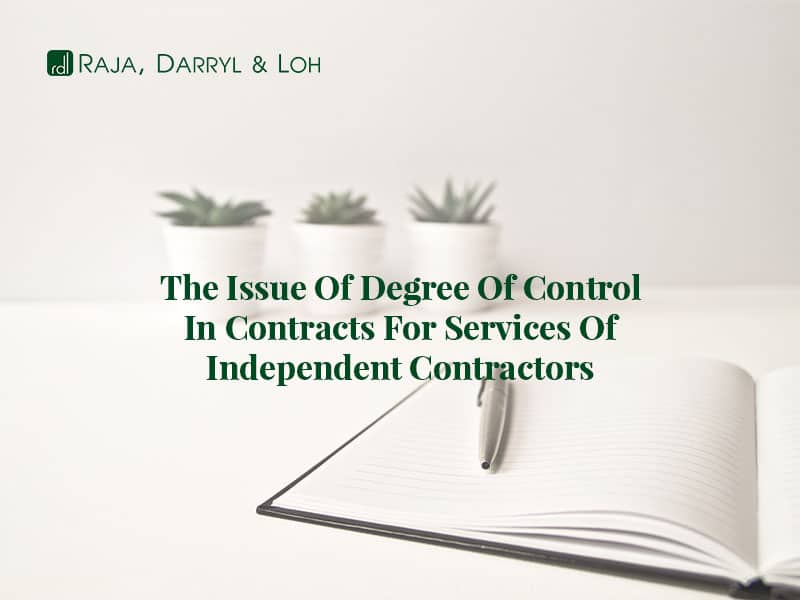The issue of the degree of control exercised on an independent contractor was recently considered by the Industrial Court in the case of Noor Asilah Binti Abdull Rahman v Columbia Asia Sdn Bhd (Award No. 2019/2019).
The Claimant, Noor Asilah binti Abdull Rahman had entered into a Resident Consultant Agreement (“Consultant Agreement”) with Columbia Asia Sdn Bhd (“Company”) to practise as a Resident Consultant Anaesthetist. Upon expiry of the Consultant Agreement, the Company exercised its discretion not to renew it.
Despite the express provisions of the Consultant Agreement which stipulated that the Claimant was an independent contractor, the Claimant proceeded with a claim for unfair dismissal on the premise that the non-renewal of the Consultant Agreement amounted to a dismissal and this alleged dismissal was without just cause and excuse.
To support her contention that she was an employee, the Claimant relied heavily on the alleged element of control that the Company apparently held over the Claimant which was in the form of the requirement to comply with and to abide by the by-laws, rules, regulations, policies, and non-medical or surgical procedures as expressly set out in the Consultant Agreement.
The Industrial Court found that the alleged control by the Company arose out of the legitimate exercise of the contractual rights spelt out in the Consultant Agreement and the Claimant was not subject to any control beyond the terms prescribed in the Consultant Agreement which rendered her an employee.
The Industrial Court also took into account the non-payment of contributions to the Employees Provident Fund (EPF) and other statutory contributions as stipulated in the Consultant Agreement, duly agreed and accepted by the Claimant, which clearly sets the boundaries of the relationship between the Company and the Claimant where the Claimant was always regarded as an independent contractor.
Another strong fact that the Industrial Court considered was that the Company had never issued any EA Form (which is usually issued to all employees) to the Claimant and that the Claimant had filed Form B (as a resident who carries on business) for her tax assessment. This clearly suggested that the Claimant was carrying on her own business as opposed to being an employee.
Hence, the Industrial Court found that the Claimant was not a workman but an independent contractor under a contract for services which was not renewed. Accordingly, the Claimant was not entitled to avail herself of the statutory provision under Section 20 of the Industrial Relations Act 1967.
As to the manner in which the Company dealt with the Claimant at the expiration of the Consultant Agreement, the Industrial Court held that it was an exercise that ought to be left to the sole discretion of the Company in considering the suitability of the Claimant to continue providing services.
Accordingly, the Industrial Court decided in favour of the Company and dismissed the Claimant’s claim on 11th July 2019.
Note:
Columbia Asia Sdn Bhd was represented by our partner, R. Ravindra Kumar (ravindrakumar@rdl.com.my); assisted by Sandra Chin Mei Wah (sandrachin@rdl.com.my).
